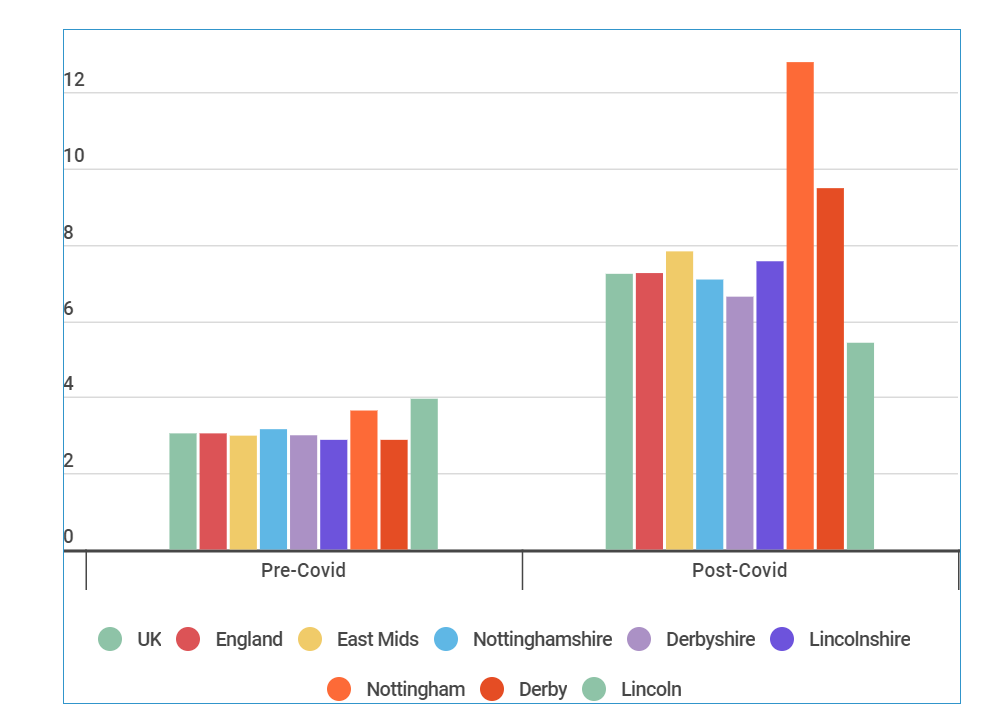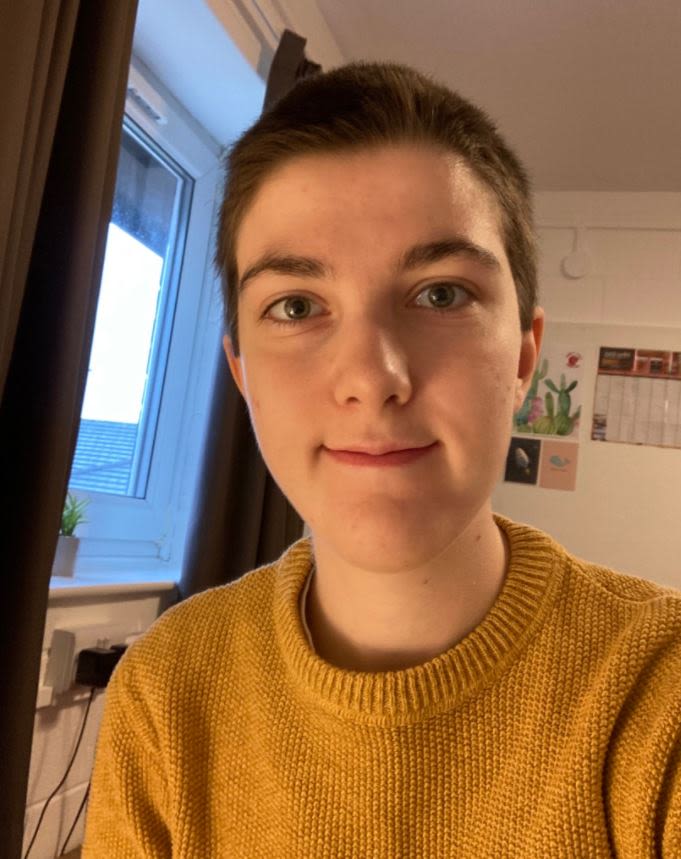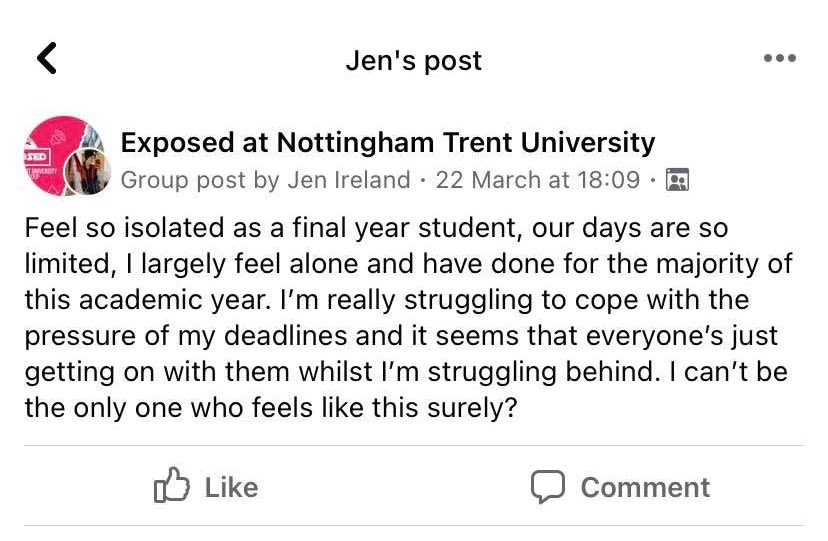Lockdown loneliness in Nottingham
"It's hard to describe how you're feeling."

Mental health is something that has been at the forefront of many people’s minds over the course of the past year, only exacerbated by the presence of lockdowns and changing work and education systems.
As a result, levels of loneliness across the UK have increased dramatically in the last year as a result of increased periods of isolation and distance from friends and family.
New data released by the Office for National Statistics (ONS) has revealed that levels of loneliness in Nottingham increased by 250 per cent as a result of nationwide lockdowns.
Shivani McAlary, 36, who recently relocated to Nottingham from Boston, Massachusetts, also found lockdown especially hard as a mother.
Having moved to West Bridgford in 2018, she was still trying to find her place in the city when the pandemic struck and felt distant from her family in America.
She said: “I moved here in 2018 after having a child with my partner and when the pandemic hit, I had to make the decision to either stay or go back to the States, so I decided to stay.
“The first wave was okay, it was hard coming from a big city to a little town and taking on two step-kids, and although it was difficult in becoming adjusted, mentally I was okay.
“The second lockdown was a lot harder because when I came, I went straight into a lockdown and didn’t get to know anyone.
“It’s been difficult in terms of adjusting and not seeing my family for almost two years now.”
Shivani added that she believes that the coronavirus pandemic has changed the way people define loneliness.
“I think this [pandemic] has affected people in different ways. With the lockdown I think people are finding it difficult to describe what they’re feeling.
“Everyone is feeling a sense of loneliness and entrapment but there’s something else that came with it because it was an enforced lockdown and an enforced feeling you had to go through. I think it’s been a struggle for people to come to terms with it and understand it.”


The average percentage of people in the East Midlands who reported feeling often or always lonely.
The average percentage of people in the East Midlands who reported feeling often or always lonely.

Gavin McNab, 50, also echoes these thoughts and believes the pandemic has had a negative effect on his experience with mental health.
The production manager from Ruddington admitted he had previously suffered from mental illness, but the pandemic had worsened his symptoms.
He said: “I’ve had historic problems with my mental health before this [pandemic] so over the past year it’s definitely not helped my outlook.
“I think for a lot of people going to work has cured a bit of the void, but for the people on furlough or have been made redundant, or working from home, that has totally exacerbated their situation.”
Gavin also expressed his concern about attitudes towards male mental health, and how he believes this period has been eye-opening for many people.
He added: “I think it’s being discussed more, but not nearly enough and I think it’s the tip of the iceberg.
“Every week you see on the news about someone walking onto rail lines with the same outcome, but how can someone even get to that stage?
“In my personal experience a lot of the issues are with the historic set up about the male ego and phrases like ‘man up’, but you can’t shuffle it away forever.
“It’s like you’re filling up a big bag and sooner or later the bag bursts. You can’t hide things and conceal things forever.”
A map of the East Midlands, showing the scale of loneliness in the region.
The data revealed by the ONS also revealed that young people are almost four times more likely to suffer from loneliness that those aged between 65 and 74.
Jen Ireland, 21, a university student in Nottingham, admitted that the decline in their mental health has encouraged them to find relationships in other places.
They said: “Loneliness isn’t cut and dry, some people might be physically distant from people, but they might have had a strong online presence with others.
“There’s a huge psychological impact with loneliness, and yes social media is inherently social, and we’ve been able to form relationships with others they wouldn’t otherwise have found.”
ONS data revealed that over a quarter of students in the UK reported feeling ‘often or always’ lonely, with two-thirds of students also reporting a decline in their overall mental health during the pandemic.
16- to 24-year-olds were significantly more likely to experience a decline in their mental health, particularly if they live in urban areas such as Nottingham.
Jen explained how they had been forced to rely on different groups of people in order to keep their spirits and motivation up.
This led to them posting on social media about their loneliness during the pandemic.
They added: “I think one of the things I’m grateful for is the different communities, especially in Nottingham that I’ve found because of it.
“I’ve done a lot of volunteering and that’s helped me because I’ve met a lot of people and made some good and lasting relationships.”


Mike Marriott, a clinical psychologist specialising in mental health, believes that reduced social interaction pertaining to the pandemic is the root cause of an exacerbation of mental struggles.
He said: “We know from a wealth of research in social psychology that group memberships and groups identities form a key part in all of our wellbeing, and that these identities are maintained through positive interactions with other group members.
“The effects of the pandemic – including the physical restrictions of the lockdown and the psychological barriers to interaction even in the periods when there have been fewer legal restrictions – will have reduced the opportunities for such interactions, undermining our wellbeing in a number of ways.
“Additionally, through reduced contact with others, the process for us to balance our own cognitive hazards – negative thoughts about our self and others, for example – has been undermined, so that anyone with a tendency towards such negative psychological processes will most likely have experienced an exacerbation.
“There has been a reduced availability of support from formal services, with the move to online therapy one example of a compromise that does not suit all, and leaves many therefore under-supported.
“These are just a few of the myriad reasons why psychological struggles will have been exacerbated over the last year.”
